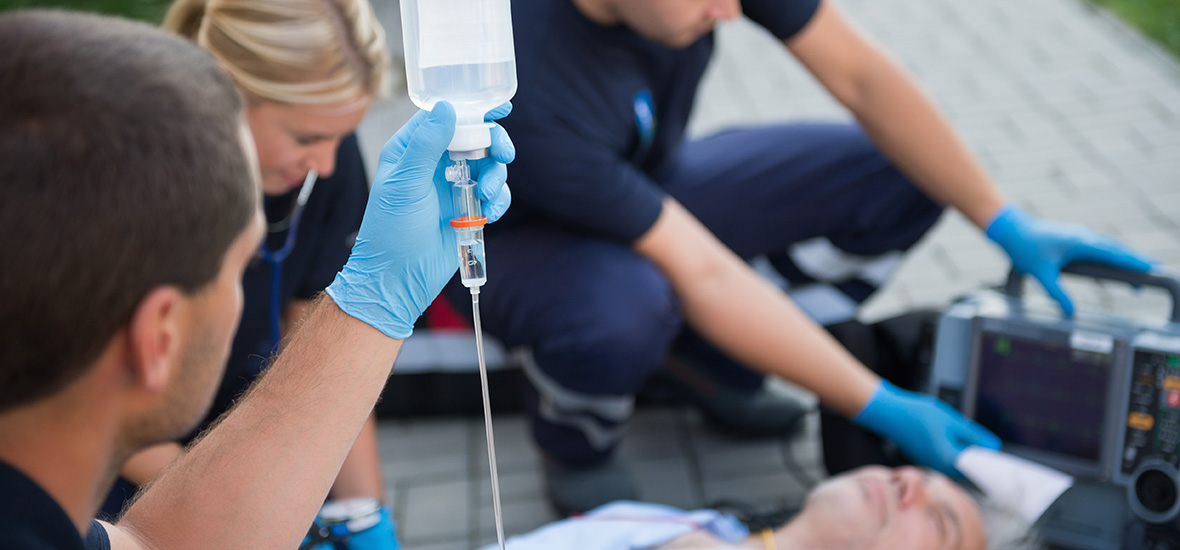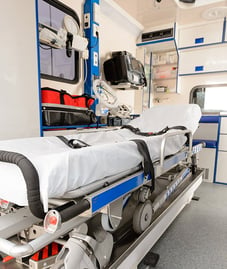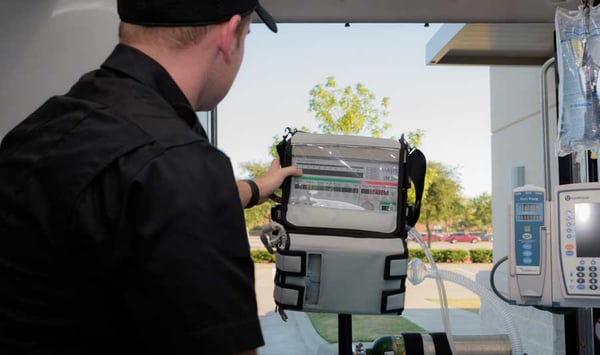Pulsara Around the World - February 2026
January Recap The start of 2026 was on the slow side for our events schedule, with our team heading to the Florida Fire & EMS Conference, the...
3 min read
 Team Pulsara
:
Aug 10, 2020
Team Pulsara
:
Aug 10, 2020

EDITOR'S NOTE: Special thanks to Kate Leatherby for writing today's blog post. You can connect with her on LinkedIn.
__
Early on in my career, I remember hearing the old military adage: “Proper Preparation Prevents Poor Performance.” Those 5 P’s made a deep impression on me and have had a dramatic impact on how I’ve approached and shaped my career.
Emergency preparedness is a vital part of emergency response. As paramedics, we constantly enter situations where we can’t always anticipate what’s going to happen. And there’s always the chance that tomorrow, we could walk into a major emergency we’ve never had to face before. Having a plan in place for the worst-case scenario can make a huge difference in the case that you have to use it.
 During my days as a paramedic, the start of the shift was always the same: the off-going crew would brief us on their shift, the state of the service area, the truck, and supplies. Then my partner and I would head out to the ambulance to complete a “truck check.” We would ensure that the monitor had an adequate supply of charged batteries, that there was enough oxygen in the main supply, as well as whether there were enough portables. We checked the fuel gauge, emergency lights, medications, blankets, bandages, etc. It was a routine daily practice in preparedness to ensure we had the equipment to handle whatever emergency might present itself during our shift.
During my days as a paramedic, the start of the shift was always the same: the off-going crew would brief us on their shift, the state of the service area, the truck, and supplies. Then my partner and I would head out to the ambulance to complete a “truck check.” We would ensure that the monitor had an adequate supply of charged batteries, that there was enough oxygen in the main supply, as well as whether there were enough portables. We checked the fuel gauge, emergency lights, medications, blankets, bandages, etc. It was a routine daily practice in preparedness to ensure we had the equipment to handle whatever emergency might present itself during our shift.
In addition to daily preparedness practice, I worked each year to sharpen and test my skills as a requirement to maintain my medical command. I would also attend numerous continuing education courses to stay abreast of industry best practices and protocol changes and updates, which helped to continually prepare my mind for critical thinking in patient care. By being fully prepared to respond, we could direct all our energy and attention to the task at hand, which was vital to the outcome and safety of the patients we served.
When I worked on emergency preparedness in the hospital setting, the principle was no different. We organized and held drills to test the knowledge of the staff and the integrity of our equipment. We held committee meetings to assess needs and deficiencies, strive to bridge the gap to preparedness and work closely with community partners to ensure our plans were all-encompassing.

Outside of work, I achieved my master’s degree in Public Policy and Management through the University of Pittsburgh’s Graduate School of Public and International Affairs (go Panthers!) and had the chance to study Disaster Preparedness at the Center for Strategic and International Studies in Washington D.C., as part of a program offered through the Syracuse Maxwell School of Public Policy. Through my course studies there, we dissected numerous mass casualty and public health emergency responses, including the PULSE nightclub shooting, the Columbine High School shooting, the Fukushima nuclear disaster, Hurricane Katrina, and the Ebola crisis.
Preparedness isn’t very glamorous, and dare I say, downright boring at times, even coming from someone who thoroughly enjoys the subject. I have, as you can see, spent most of my career preparing for the worst-case scenario. So, reflecting back on my career and my studies, I’d like to offer the following points as the 5 most important pieces of advice when it comes to preparedness and emergency response:
Preparedness isn’t something to be focused on only a few times a year to meet accreditation standards. It’s a constant mindset that we need to practice.
Streamlined, efficient communication can help mitigate loss of life and keep responders safe. Make sure you have a tested communication plan and system in place.
Emergency response is a dynamic situation with many shifting factors. History has shown that the success or failure of an effective response can hinge on having leaders who are prepared. If leadership isn’t prepared, that will filter down through the ranks.
Mass casualty and public health emergencies don’t happen in silos. It’s important to make sure that everyone is on the same page and that each organization knows how to coordinate with one another.
The FEMA NIMS ICS courses are an excellent way to learn preparedness, as are the courses offered through the Center for Domestic Preparedness in Anniston, Alabama, and through the Emergency Management Institute in Emmitsburg, MD. Take every opportunity to learn how to better practice preparedness.
Emergency preparedness isn’t a one-time fix that ensures you’re prepared for whatever situation life throws your way; it’s a constant mentality that requires daily practice. But with a little practice, it can make a huge difference next time you find yourself facing an emergency. And that's 100% worth it.
![]()
Click here to learn how Austin-Travis County EMS used Pulsara as part of its COVID-19 emergency preparedness strategy.

January Recap The start of 2026 was on the slow side for our events schedule, with our team heading to the Florida Fire & EMS Conference, the...

Recent research shows how Pulsara was successfully leveraged to connect more than 6,000 COVID-19 patients to monoclonal antibody infusion centers via...

At Pulsara, it's our privilege to help serve the people who serve people, and we're always excited to see what they're up to. From large-scale...